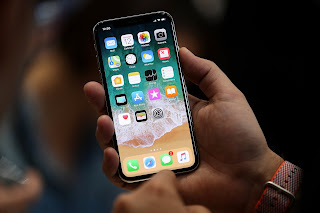iPhone X's A11 Bionic Chip Destroys Competition in Geekbench Benchmark Results
iPhone X's A11 Bionic Chip Destroys Competition in Geekbench Benchmark Results
Atul Tiwari ,18 September 2017
HIGHLIGHTS
- #Benchmark test claims A11 Bionic chip is a powerhouse
- #iPhone X's multi-core scores way higher than the competition
- #A11 chip has six-cores capable of running them simultaneously
The iPhone X was announced last week with many highlights including Face ID, an almost bezel-less OLED display, and a really fast A11 Bionic chipset - something the iPhone 8 and iPhone 8 Plus also sport. The SoC has six CPU cores, with the ability to run all of them simultaneously. Now, the iPhone X has been put through GeekBench 4, and the single-core and multi-core tests both prove that the chipset is indeed very powerful. The Apple iPhone X beats the competition in the market - like the Samsung Galaxy Note 8, Samsung Galaxy S8, and the OnePlus 5, and the Samsung Galaxy S8+ by a fair margin, as seen in this comparison graph. The Samsung Galaxy Note 8 and Galaxy S8 are being powered by a Exynos 8895 SoC, while the OnePlus 5 and the Galaxy S8+ are powered by Qualcomm Snapdragon 835 SoCs.
The multi-core scores for the iPhone X are much higher than the rest with the second on the list being the Galaxy Note 8 with 6,784 points, while the iPhone X manages a score of 10,069. The single-core score for the iPhone X is at 4,188, while the iPhone 7 Plus stands second with 3,473 points. The iPhone 7 Plus has an A10 Fusion chip with two high-powered cores and four power-efficient ones, but unlike the A11 which is able to run all cores simultaneously, the last generation one was able to run only one cluster at a time - either the high-powered one or the power-efficient ones.
Contents taken from 360 degree






Comments